Klei's love letter to Sid Meier's Pirates! is set in cosmic purgatory
Klei's Kevin Forbes and Kendra Hibbert talk us through Dread Pilots and the oddest universe you'll steer a spaceship through.
"It's a combination of all of those games", Klei's Kevin Forbes tells me, referring to some of the studio's previous releases: Don't Starve, Invisible, Inc, and Griftlands. But it isn't until he mentions Sid Meier's Pirates! that I can really visualize what it's like to play Dread Pilots.
"I played it when I was, like, eight? The original CG four-color version. It left an indelible mark, and I think I've been chasing it ever since," Forbes says.
Pirates! (exclamation mark mandatory) has released in more guises and reboots than a Spider-Man origin story over the years, but the basic tenets have always been this: you’re a ship's captain, plundering the Caribbean seas in real-time naval battles and mini-games that capture various aspects of a pirate's life including but not limited to fencing, trading, and getting married. As best the tech of 1987 could muster, it's a life sim with a very specific setting. And that broadly describes Dread Pilots, too, although the components of that experience are stitched together with considerably more sophistication.
"So here's this game where you're like, it's that… But in space," Forbes says. "You're Han Solo-ing your way about: you do trading, you do fighting, you do exploration, you do scanning information, discovery. There are mysteries to find."
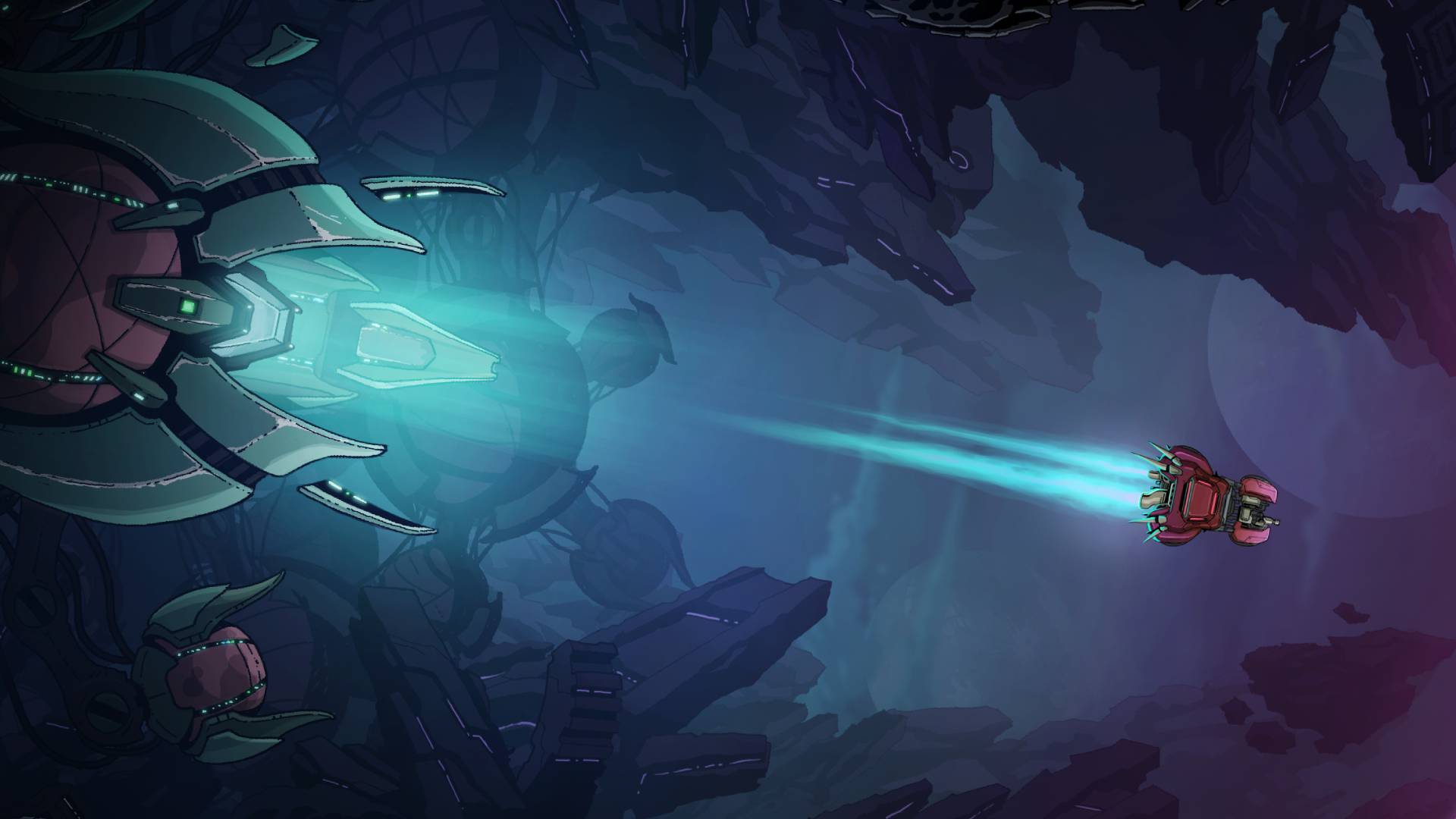
The top-down camera perspective allows for plenty of action, exploration, and mystery-uncovering, although you’re not ready for combat right from the off.
"Immediately at the start, you're kind of in a hunk of junk with a mining drill on the front of it, then you want you kinda have to find something better," Forbes says. "You make your way through the world, and you make decisions, you talk to people, you make friends, relationships, that kind of thing. Systems that we kind of explored in Griftlands, ways to make an interactive narrative where things unfold semi-randomly, but under player control."
Of course, in Pirates!, you knew what to expect from the world around you. Tricorn hats, cannonballs, rum. Booty. However tenuous its relationship to the reality of life at sea between the 1600s-1700s, we've all got a pretty clear image in our heads of that setting, and it involves Johnny Depp swaying gently while pointing at someone and narrowing his eyes. Dread Pilots, however, is cut from high-tech cloth. "We are both in the far future and an alternate universe," says Klei writer Kendra Hibbert, delving into the wonderfully alliterative "purple people purgatory" where all this adventuring takes place.
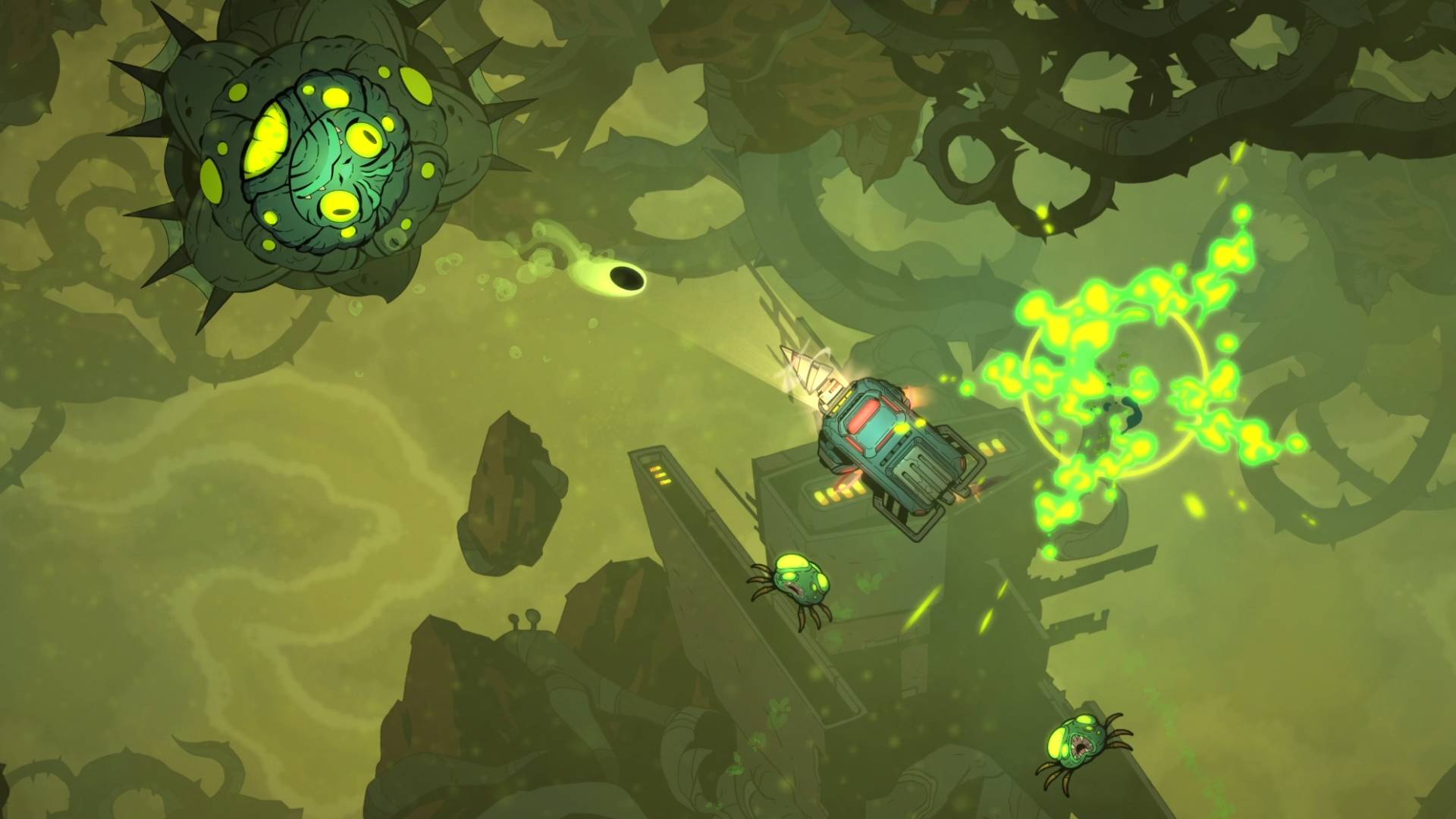
In this otherworldly realm, technology has progressed well beyond our familiar world, and ships travel vast distances across space like it's nothing. Several distinct factions have found themselves in The Dread (a place where, coincidentally, I was a frequent visitor during the Sunday mornings of my twenties). A hard-to-pin-down metaphysical realm where, nonetheless, those factions have taken root and impose their distinct agendas.
The biggest gaming news, reviews and hardware deals
Keep up to date with the most important stories and the best deals, as picked by the PC Gamer team.
Techno-utopians, space-dwarves, pirates, law enforcement zealots, and perma-grinning merchants all vie for dominance in their own way, and it's your call who to do business with and to what end. The vibe is the Star Wars Mos Eisley cantina writ large, a landscape of amoral task-givers to facilitate your accumulation of resources and power. Except for the Contenders, you understand—who are the aforementioned cop types. They're pretty clear when it comes to right and wrong.
While Griftlands had what Forbes calls "a distinct narrative arc", the journey is a lot more player-directed in Dread Pilots. There is a story and an ending, but they’re not formally structured. They take shape as you make judgment calls and do deeds in The Dread. To that end, at this early stage of development, Klei's not closing the door on you being able to work with one faction just because you already did a few jobs for another.
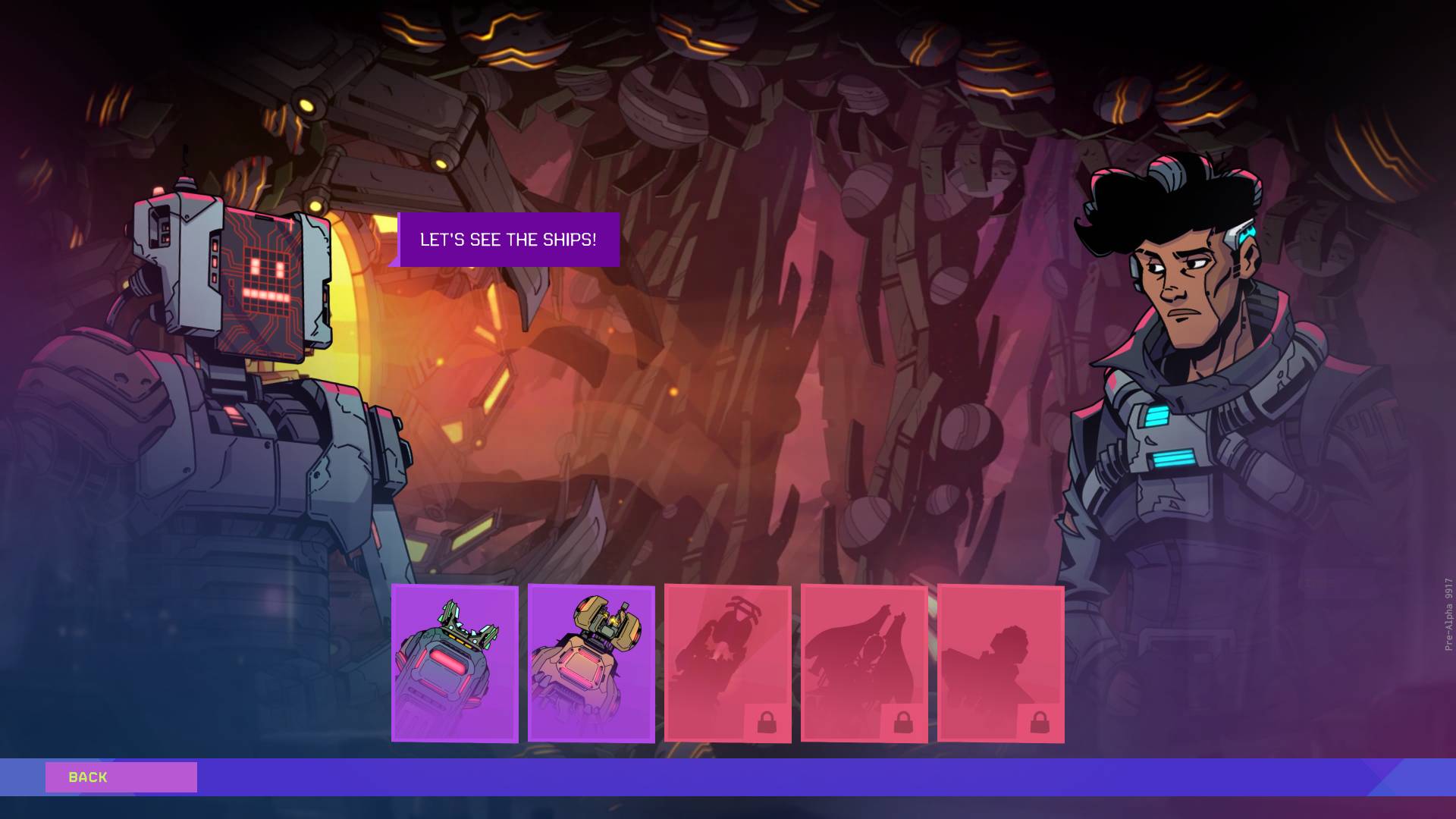
The inherent strangeness of the setting and its inhabitants feels like one of Dread Pilots' strongest assets. Hibbert describes a cult of machine-worshippers who believe the pile of nuts and bolts they pray to will bring about a utopia. Meanwhile, Rock people are concerned only with mining and stockpiling their considerable resources away from the prying eyes of outsiders. The thickets are a loosely affiliated band of "rogues, thieves, and smugglers" for whom you’ll be performing some of the more nefarious tasks in the game. And the Contenders, with whom you’ll be in trouble after doing those nefarious tasks. Merchants who smile and wish you a nice day as you’re robbing them. Space-hippies. Vampires who "just want corpses".
It’s difficult to turn too many corners in a modern indie's lore without bumping into H.P. Lovecraft or Ridley Scott, but Dread Pilots, it seems, is going for something genuinely different.
Luckily for the pragmatist, you can address a lot of these factions' wishes and missions with combat. And the combat model here is grounded in a physics-driven model with the inertia and wide turning circles you’d expect from a great big, lumbering space vessel. Klei did experiment with more lithe, quick-firing ships but found that players were essentially playing it as a shmup: "Not the vibe we’re going for," Forbes says.
"We want it to be kind of scary. You're in a scary place. Monsters are coming out of the walls half the time, so we toned everything down. It's much more thoughtful; you move pretty slowly."
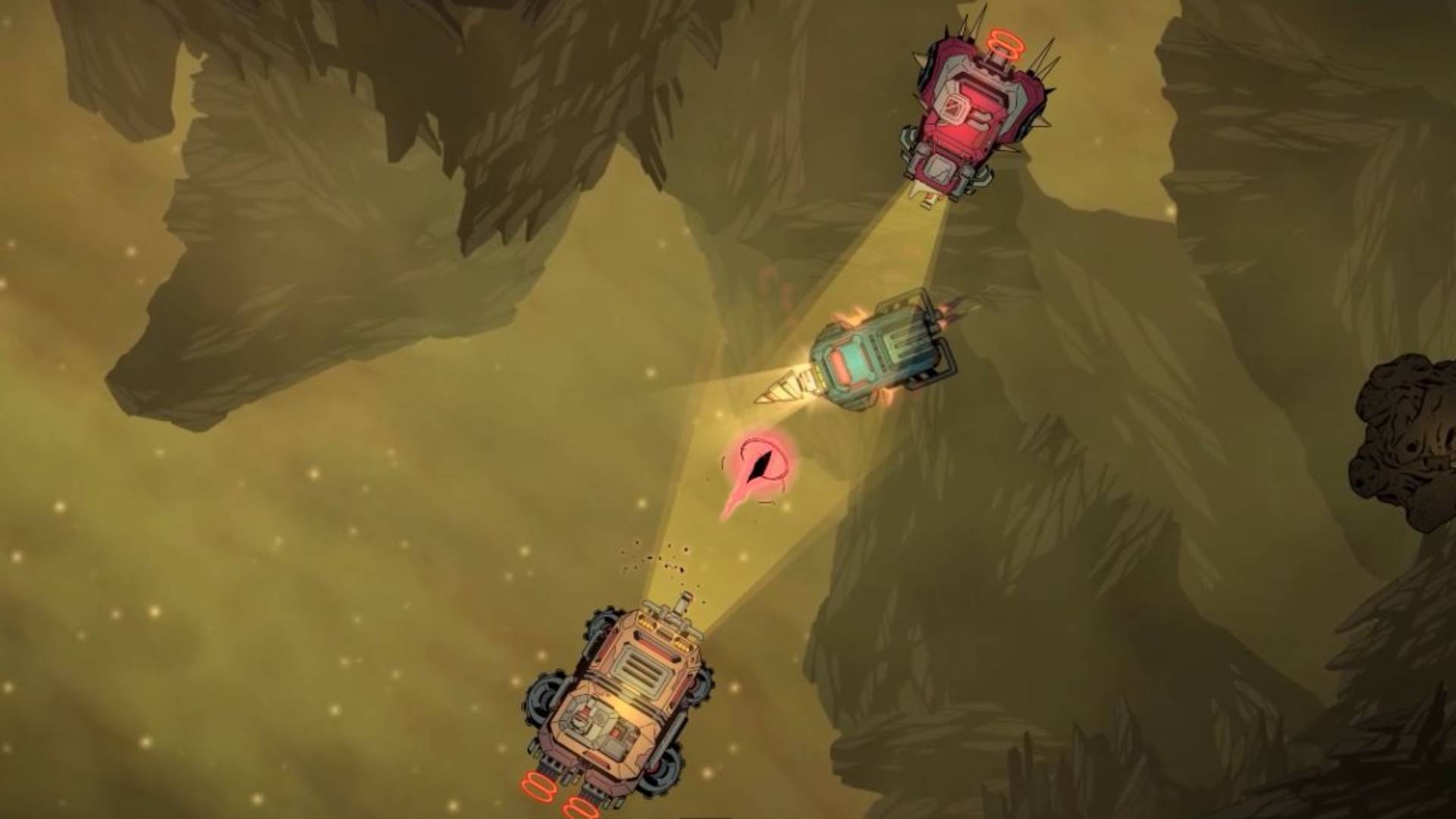
Ships can take quite a pounding before they explode. Still, the damage you take may bust open a hole in your hull where items pour out into the vacuum, so there’s a deliberateness to entering a fight, a sense that it’s going to take a while, it’s going to require skill, and there will be consequences. And Forbes stresses that running away is definitely an option. Particularly in the early game when you’re moving around in a glorified drill.
"The ship you start with is not a combat vessel; it's the ship you're kind of abducted in, into this pocket universe," Forbes says. "You're just doing your job, man. It's got a big drill on the front that you can use to get rid of barriers in your way. You can fight with it, but it's hard because most people are a little faster than you, and, you know, it's a drill. But if you connect, it's okay."
As you progress, you can upgrade the ship and spec it out for different combat styles—lasers, missiles, and turrets. Or you might decide this whole combat thing isn't for you and simply sweet-talk or logic your way through The Dread instead.
That won't work for the monsters you'll meet during your travels, but combat is just one of several options when solving problems for factions. Dread Pilots' character, ship, and resource systems all let you lean into different playstyles.
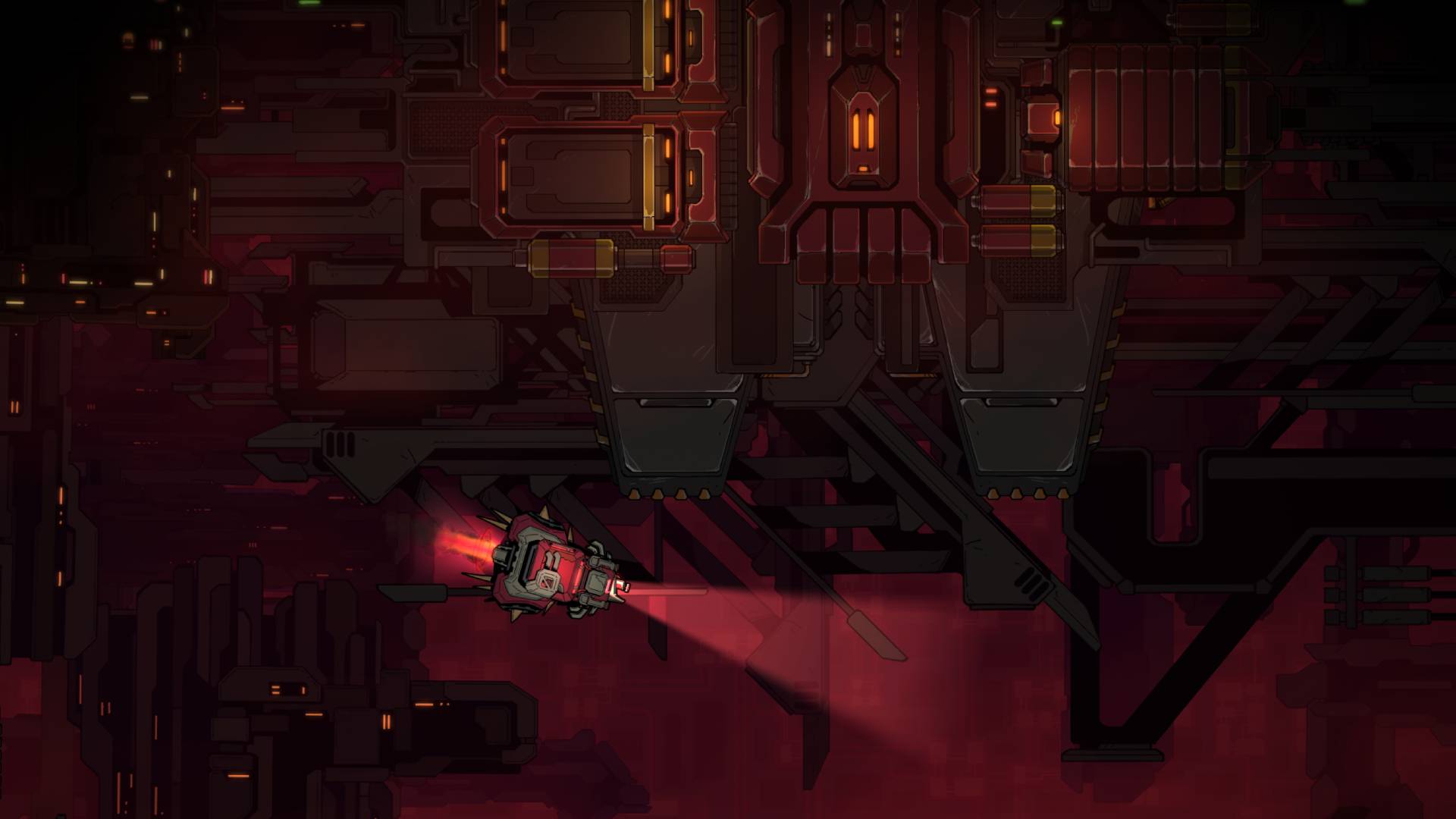
Let's remember: this is a game set in purgatory. And just as trying not to starve in Don't Starve's field full of old-timey horrors played heck with one's sanity, events in Dread Pilots can affect your 'Tether', essentially how tied you are to reality. Encounter lots of scary stuff, and your tether will loosen. Anomalous phenomena will start popping up around you with increasing frequency. While performing FTL jumps across the universe, you can slip deep into The Dread universe itself and find yourself fighting your way back out. To remain successfully tethered, you’ll need to have some quality downtime.
"You have to talk to your friends," says Forbes. "You have to catch up with people. You can go to the bar, you can relax. There's some chemical assistance you can get. But it's definitely something that you don't want full all the time because there are opportunities that Dread encounters provide. But if it gets too low, something's gonna get you."
Seeking out social interaction to ward off the demons. I point out that this sounds a lot like my experiences of lockdown. Was this mechanic inspired by living through covid?
"I haven't interrogated that," says Forbes. "But maybe now I need to."
Phil 'the face' Iwaniuk used to work in magazines. Now he wanders the earth, stopping passers-by to tell them about PC games he remembers from 1998 until their polite smiles turn cold. He also makes ads. Veteran hardware smasher and game botherer of PC Format, Official PlayStation Magazine, PCGamesN, Guardian, Eurogamer, IGN, VG247, and What Gramophone? He won an award once, but he doesn't like to go on about it.
You can get rid of 'the face' bit if you like.
No -Ed.


